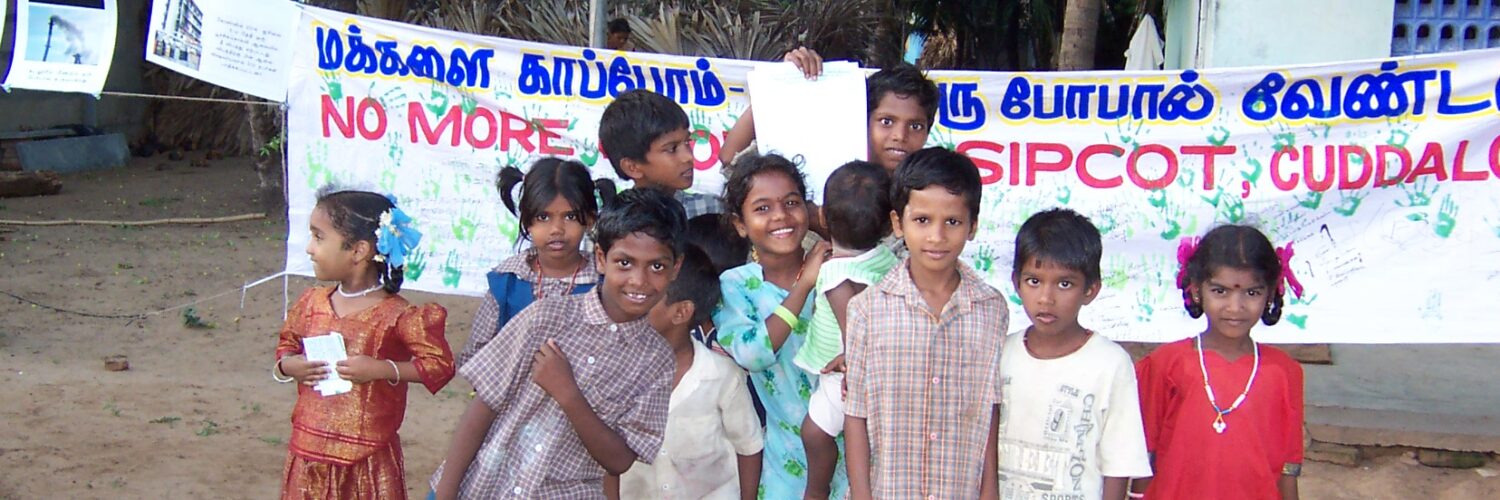Special Correspondent
The Hindu
04 June, 2005
Ramadoss unhappy over plan to start new units; seeks public hearing Ramdoss unhappy over plan to start new units; seeks fresh hearing
CUDDALORE: The Pattali Makkal Katchi (PMK) has called for fresh environmental impact assessment (EIA) and holding of a public hearing before setting up new units in the SIPCOT Industrial Estate here.
PMK founder S. Ramadoss has taken up the issue with Union Minister for Environment A. Raja, stating that excessive pollution had had severely “affected the mental and physical well being of residents in the area.”
In a letter addressed to the Union Minister (a copy was made available to press persons), Dr. Ramadoss said that as per the National Environmental Engineering Research Institute (NEERI) recommendations, a comprehensive regional EIA should be ordered “to assess whether existing ground realities are conducive for setting up more polluting and water-intensive units in the area.” For the past 20 years, residents had been complaining that toxic emissions and effluents had poisoned their air, water and land. As a result, children and youth were suffering from serious health ailments.
In 1998, the Tamil Nadu State Human Rights Commission denounced any move to set up new units in the region.
The Indian People’s Tribunal on Environment and Human Rights, and the Supreme Court Monitoring Committee on Hazardous Waste in their reports, indicated that the environment in the area could not take any more burden of pollution.
Dr. Ramadoss said that it had come to his notice that Chemplast Sanmar had proposed to set up a polyvinyl chloride facility, using vinyl chloride monomer as raw material (human carcinogen and highly explosive substance), as part of the Phase II plan.
Local communities and environmental groups had rejected the proposal when it came up for public hearing in 2002, prompting the International Finance Corporation, World Bank’s private sector lending agency, to turn down the company’s loan application. After making a vain attempt to relocate the unit at Krishnapatnam in Andhra Pradesh, the company had proposed to come back to Cuddalore, by offering certain “cosmetic changes”. As per the new strategy, it proposed to set up a desalinisation plant to secure 2,800 cubic meters of water, and also sink borewells to obtain 2,800 cubic metres of water and discharge the effluents into the sea.
Dr Ramadoss stated that the proposal was not based on sound scientific principles. The highly inflammatory material would pose potential hazard to other units and human habitations and therefore, a study to ascertain the safety was a must before launching new projects, he said.
